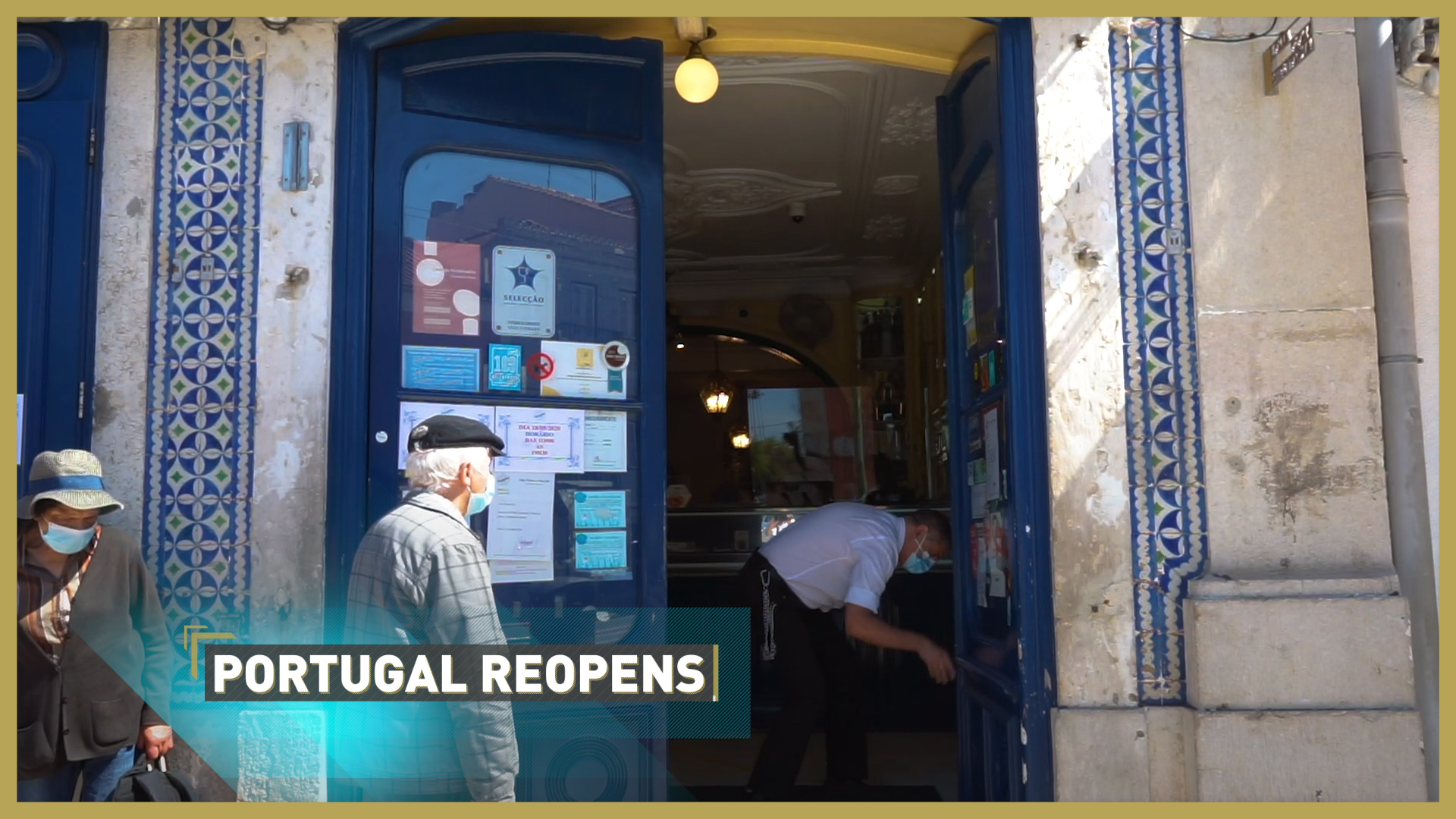Portugal is now well ahead in its plan to ease lockdown restrictions. It started on 3 May with the reopening of small shops, hairdressers, beauty salons, bookstores and libraries. And on 18 May, the second stage allowed the reopening of bars, cafes, restaurants, daycare centers, museums, palaces, national monuments, art galleries and high schools for senior students.
For the first time in two months, the most famous pastry shop in Lisbon – selling the traditional pastéis de nata – finally reopened its doors. "It was a difficult decision to close for the first time in 43 years, but today we are excited to reopen and do what we do best," says Miguel Clarinha, manager of Pastéis de Belém.
02:39

During a third phase of "desconfinamento" starting on 1 June, cinemas, theaters, shopping malls and larger stores will be able to welcome customers again. In an attempt to revive tourism – which accounts for 15 percent of the country's GDP – many hotels will also start reopening, with the ones following proper hygienic measures being rewarded with a "Clean&Safe" seal that will reassure guests of the safety of the establishment.
Portugal's prime minister, Antonio Costa, already announced the reopening of beaches on 6 June, where people will have to keep a 1.5-meter distance, the booking of deckchairs will be limited to either morning or afternoon and group beach sports won't be allowed. No police will be deployed to enforce these rules, as Costa said "beaches should be places of leisure." Adding: "We have to be checking ourselves."
An app will be available for beachgoers to check whether the beach of their choice is overcrowded and they should aim for a different one.

Portuguese barber Elizio da Silva Gomes waits for customers at the Campos barber shop in Lisbon. /Patricia De Melo Moreira/AFP
Portuguese barber Elizio da Silva Gomes waits for customers at the Campos barber shop in Lisbon. /Patricia De Melo Moreira/AFP
Portugal is one of the few success stories in Europe on controlling the spread of the virus, and the country had a very low caseload, especially when compared with its neighboring countries – surprising, considering that around 22 percent of its population is aged 65-year-old or over and that the country has the lowest number of intensive care beds in Europe.
How has Portugal's response been different and how has it managed to avoid the high death tolls of neighboring countries?
Filipe Froes, a doctor from the national COVID-19 task force, says Portugal had time to prepare for the outbreak, with the virus reaching the country later than in Spain and Italy. "We had precious days to implement a strategy that allowed us to prepare our hospital response," he says.
"We also introduced the state of emergency and confinement measures earlier than these countries, so those measures had more impact."

A waiter disinfects chairs and tables at a terrace after the easing of lockdown measures in Lisbon. /Patricia De Melo Moreira/AFP
A waiter disinfects chairs and tables at a terrace after the easing of lockdown measures in Lisbon. /Patricia De Melo Moreira/AFP
When the state of emergency was introduced in Portugal on 18 March, the country counted only 642 confirmed cases and two deaths. Portugal quickly closed schools, borders, and closely monitored patients placed in home isolation.
The number of intensive care beds was increased by 35 percent, however patient demand never reached full capacity. In the absence of a mandatory lockdown, the country relied on its citizens' sense of civic responsibility and self-discipline and most stayed at home.
The government says other restrictions might be lifted soon, such as resuming religious services or football games, if the situation continues to improve. The government warns, however, that no one will be entirely safe from the virus until there's a vaccine. Until then, social distancing and masks will be part of the new normal.
In the worst-case scenario, should the easing of lockdown be followed by a second spike of COVID-19 cases, the prime minister said he won't hesitate to reintroduce the state of emergency. The situation will be reassessed every 15 days, as authorities in Portugal work to keep the pandemic under control and prevent the country's economy from falling into another financial crisis like that of 2008.